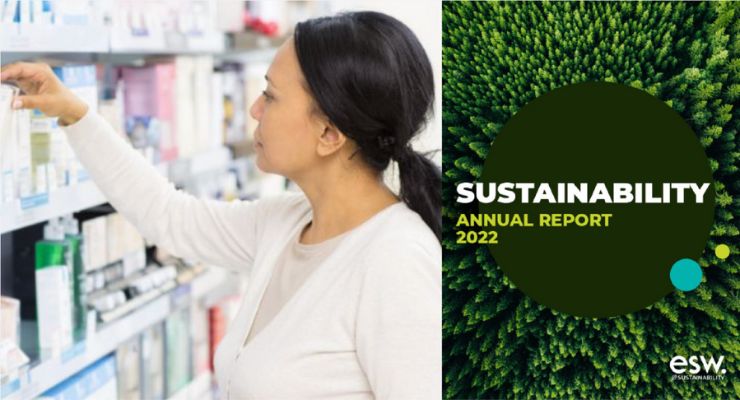04.22.24
According to the new Global Voices survey from ESW, U.S. consumers are less sustainably minded than they were a year ago. This year’s score dropped to 49, from 51 in 2023, the U.S. also lags the global mean, which is 55.
The survey shows that emerging markets are becoming more concerned about sustainability. For example, India (75), the United Arab Emirates (74), China (70), and Mexico (67) topped the list, with Japan (32), Germany (46), UK (46), Switzerland (48), and Canada (48) all coming in with the lowest sustainability scores.
Martim Avillez Oliveira, Chief Revenue Officer, ESW, says, “The data suggests that while US consumers have been encouraged to make environmentally responsible choices for years, perhaps the intensity of that messaging, along with the increasing strain that inflation places on households, may have consumers at a tipping point.”
Globally, more than half of the consumers surveyed (55%) are more aware of greenwashing than they were a year ago, and 27% said they considered a brand’s environmental transparency record when making a purchase.
Luxury shoppers are 1.5 times more likely to be sustainably attuned shoppers. Shoppers with a score over 80 on the sustainability scale are identified as attuned shoppers.
31% of consumers consider sustainable packaging options when shopping online, while 30% consider sustainable shipping options, and 29% value less packaging overall.
Globally, 63% of shoppers said that they value brand authenticity and want brands to be truthful and transparent about company environmental credentials.
For the full report visit the ESW website.
Beauty Consumers Are Pressuring Brands for Greater Sustainability
Beauty Execs Talk Sustainable Packaging—Current Trends & What Lies Ahead
How Sustainability Initiatives Impact the Beauty and Personal Care Industry
The survey shows that emerging markets are becoming more concerned about sustainability. For example, India (75), the United Arab Emirates (74), China (70), and Mexico (67) topped the list, with Japan (32), Germany (46), UK (46), Switzerland (48), and Canada (48) all coming in with the lowest sustainability scores.
Martim Avillez Oliveira, Chief Revenue Officer, ESW, says, “The data suggests that while US consumers have been encouraged to make environmentally responsible choices for years, perhaps the intensity of that messaging, along with the increasing strain that inflation places on households, may have consumers at a tipping point.”
Key Findings
Generally, younger generations are more concerned with sustainability, with Gen Z holding the highest score. Gen Z- 61, Millennials- 60, Gen X- 53, Baby Boomers- 49.Globally, more than half of the consumers surveyed (55%) are more aware of greenwashing than they were a year ago, and 27% said they considered a brand’s environmental transparency record when making a purchase.
Luxury shoppers are 1.5 times more likely to be sustainably attuned shoppers. Shoppers with a score over 80 on the sustainability scale are identified as attuned shoppers.
31% of consumers consider sustainable packaging options when shopping online, while 30% consider sustainable shipping options, and 29% value less packaging overall.
Globally, 63% of shoppers said that they value brand authenticity and want brands to be truthful and transparent about company environmental credentials.
For the full report visit the ESW website.
Read Next
Nearly 60% of Gen Z and Millennials Only Buy Eco-Friendly BrandsBeauty Consumers Are Pressuring Brands for Greater Sustainability
Beauty Execs Talk Sustainable Packaging—Current Trends & What Lies Ahead
How Sustainability Initiatives Impact the Beauty and Personal Care Industry























